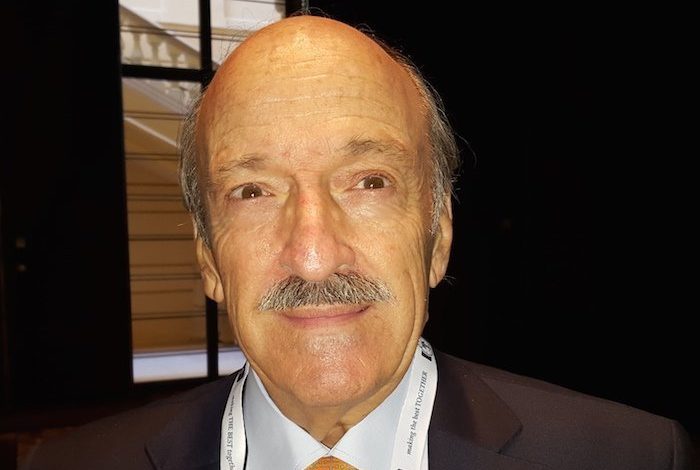A.G. Pappadakis and Co: Of dry bulk and bubblegum

Athens: Shipping rates sooner or later will recover but market consolidation – similar to what is happening in the aviation space — will likely be needed in the dry bulk arena. That’s the view of veteran Greek owner Nicholas (Nicky) Pappadakis, chairman at family firm A.G. Pappadakis and Co.
“Will shipping copy the airlines industry where a large amalgamation is taking place?” he muses. He notes how in 2012 there were around 1,850 privately owned companies active in dry bulk with a fleet ranging between three and eight ships, while 15 or so companies had 100 ships or more. “I think this is a quite interesting statistic,” says the former Intercargo chairman.
Dry bulk finds itself in its current crisis, the seasoned shipowner says, because of overtonnaging – too many speculative orders in the past are now haunting the sector – combined with the slowdown in the Chinese economy.
“Those are the two main reasons but personally I’m confident that in the future dry bulk shipping will eventually rebalance,” says Pappadakis who started working in the ship chartering business in 1961 and has lived through nine downturns in his career.
He recalls how before the boom started in 2003 the shipping world was in crisis.
“In December 2002, panamax bulk carriers were earning $8,000 per day and by the end of January 2003 I believe the same ships were earning some $30,000 per day. All I’m trying to say is that the freight market can move dramatically up or down and often because of reasons that are nothing to do with the under orderings or over orderings of ships.” Pappadakis says. He says sea freight rates reflect the utilisation of ships and one of the mantras his father taught him is: “Freight can only be a fraction of the value of the commodity carried”.
“Thanks to that,” he says, “some years ago I realized that the boom that started in 2002 could not last for long and that’s why I sold the fleet in 2007. The positive cycle experienced from 2002 to 2008 was the largest ever and it’s like bubblegum: if you blow it, it’s good as long as the integrity of the bubble doesn’t break.”
Looking into the recent dry bulk past, Pappadakis says that China and India have been “the two shoulders of the shipping boom” and now, despite the slowdown registered this year in the GDP growth of China, he is confident that India will contribute to the world economy in the coming years. “Both the countries,” he says, “have a long way to go before they become fully industrialised.”
Bulk carriers rates sooner or later will rebound, Pappadakis insists. “I think it’s a question of only when the rebalancing between demand and supply of tonnage will happen. Because it’s sure that it’s going to happen. What I can’t say it’s when it is going to happen.”
The good news for the market is that now it’s harder to find lenders for newbuilding projects or for secondhand vessels to buy. Looking at the present market condition of ship financing, the Greek owner thinks that private equity has a role to play but investment funds take a different timeline outlook.
“Greek shipowners, when they order a new ship, are looking for 25 years time, private equity five years often maximum,” he observes.
Pappadakis does strongly believe in family run businesses but he thinks that from now on a market consolidation is inevitable.
